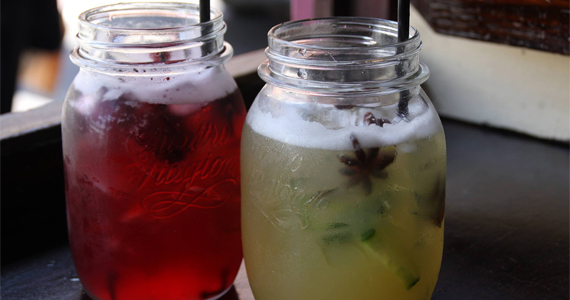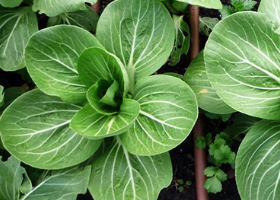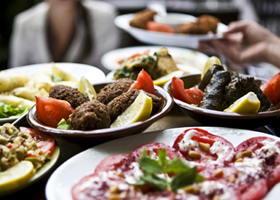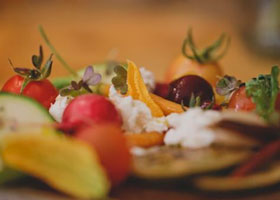Newtown favourite sticks to its roots
Author | Raymond Ramia
Raymond Ramia sat down for a chat with the owner of Newtown favourite, Vargabar, to talk all things sustainable food and why it’s worth it.
Owner and manager of Vargabar in the Inner-Sydney suburb of Newtown, Daniel Levitus, understands sustainability as an ‘umbrella’ term meaning there is little or no impact on the environment before and after the ingredients arrive at the restaurant. Staff preference for biodynamic and ethical foods meant that Vargabar was always going to have a sustainable approach from the very beginning. The result is good tasting food the way nature intended with less impact on the environment.
Daniel uses only seasonal produce in his restaurant café, with most of the ingredients sourced locally and organically where possible. Produce is sourced from local farmers in places like Byron Bay and Cowra NSW. Their coffee is sourced from ethical farmers, is rainforest alliance certified and comes from places like India , Mexico and Ethiopia.
Daniel utilises biodegradable materials to package his foods and recycled timber for all the menus. He recycles the cooking oil which is then picked up for biofuel and later converted into biodiesel. Coffee grounds are also recycling and given to gardeners for use as compost or mulch. Every year Daniel saves around 2000 kg of coffee grounds that would otherwise be sent to landfill.
Animal welfare has also always been an important consideration for the cafe, with Daniel supporting the ethical treatment of animals and stocking free-range, grass-fed and organic animal products.
In supporting farmers and sustainable produce, Vargabar hopes to raise awareness about bioethicalfoods without chemical or biological influences, whole foods and sustainable lifestyles in general. And plans for the future? Growing micro-herbs and installing solar power are just the tip of the iceberg.






